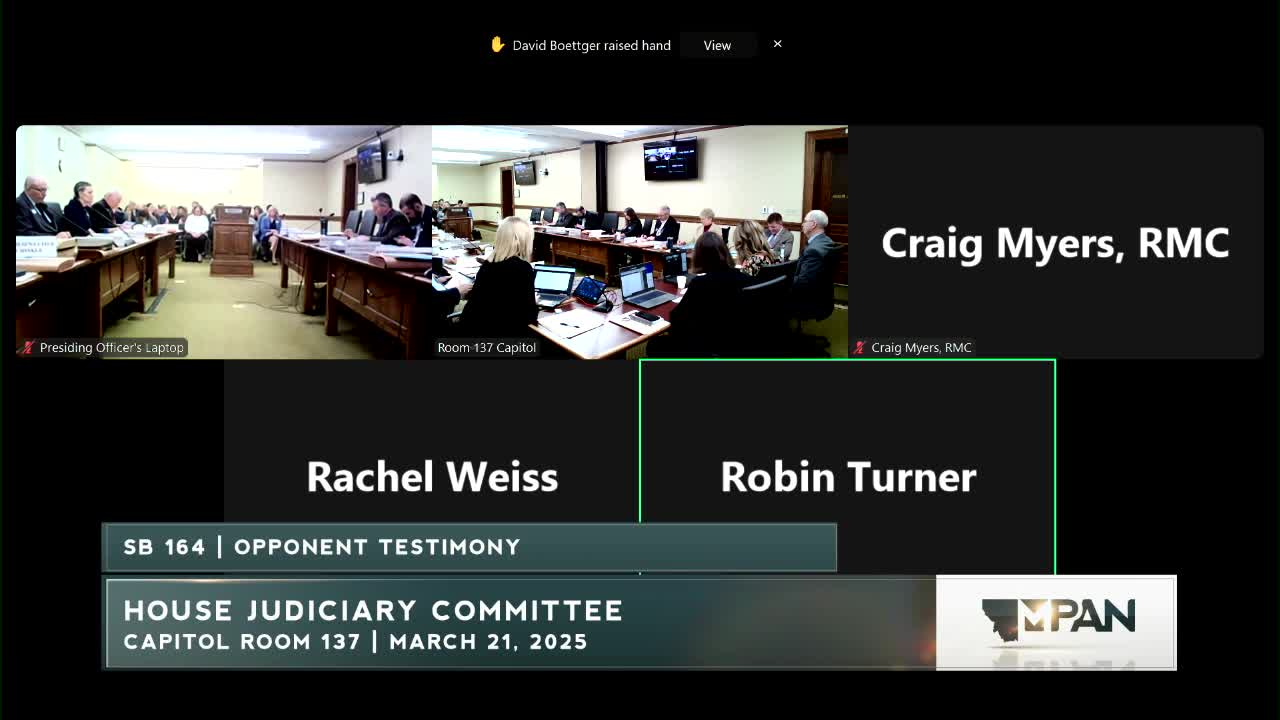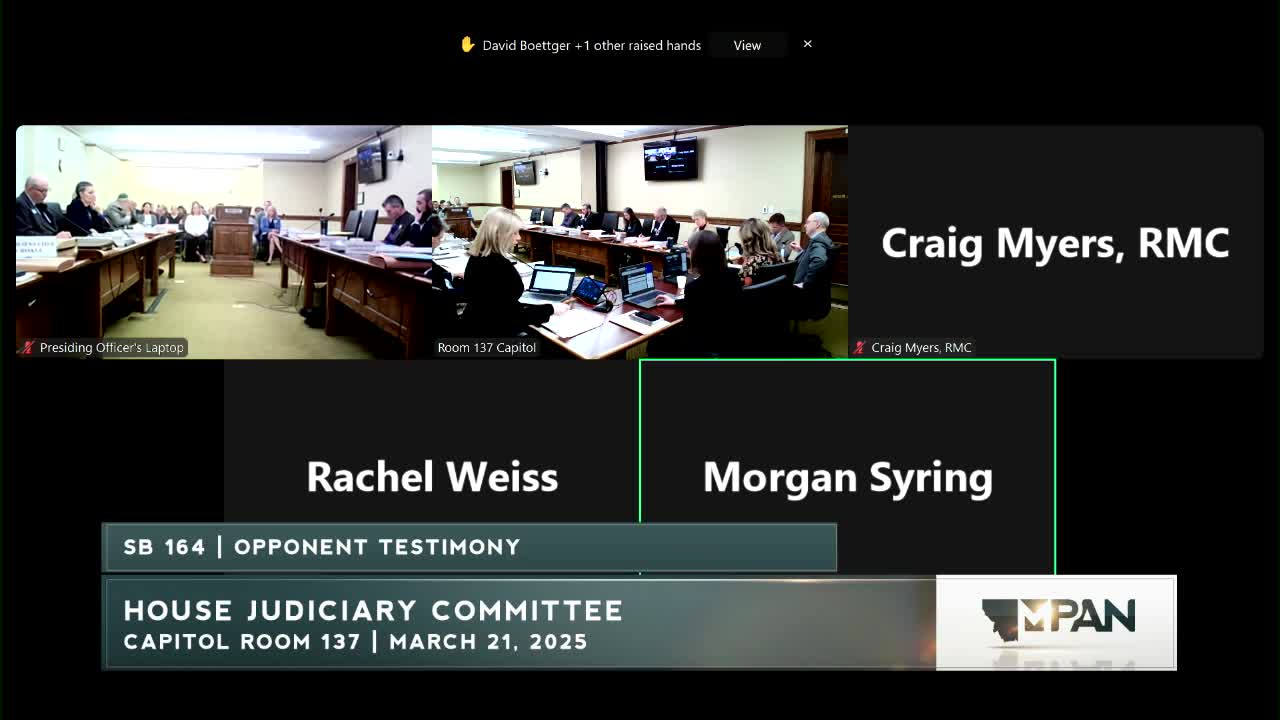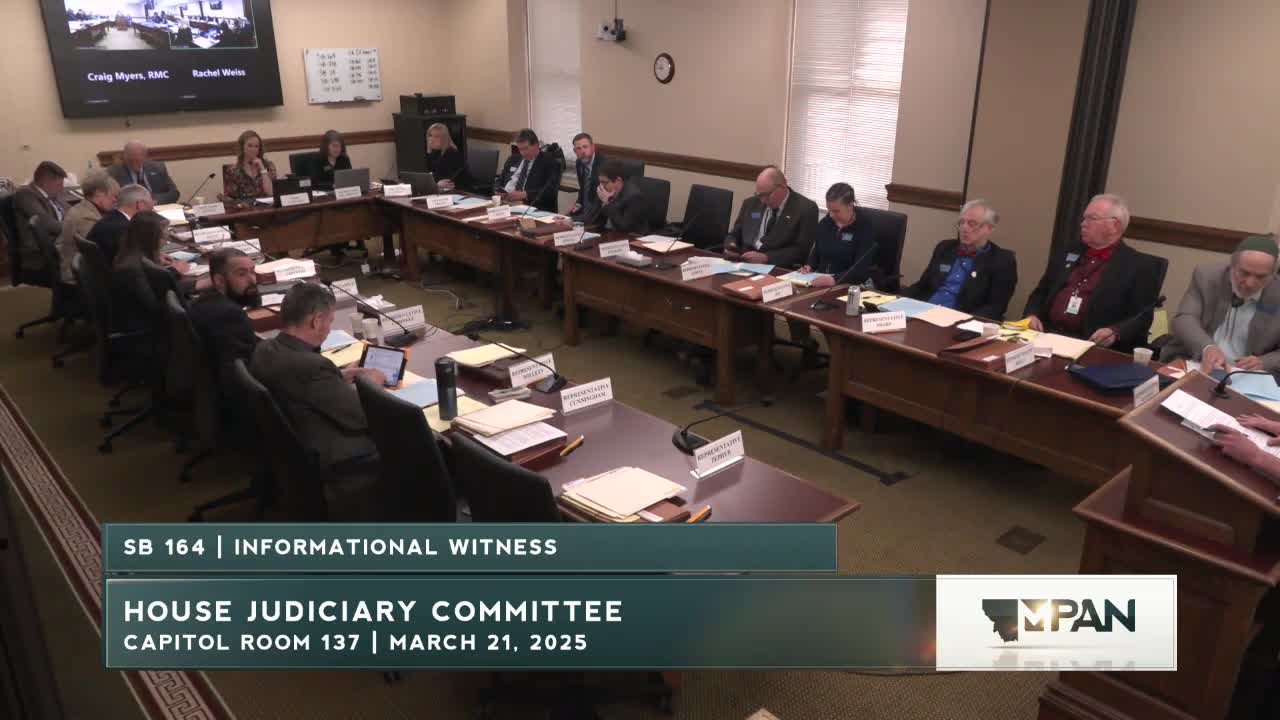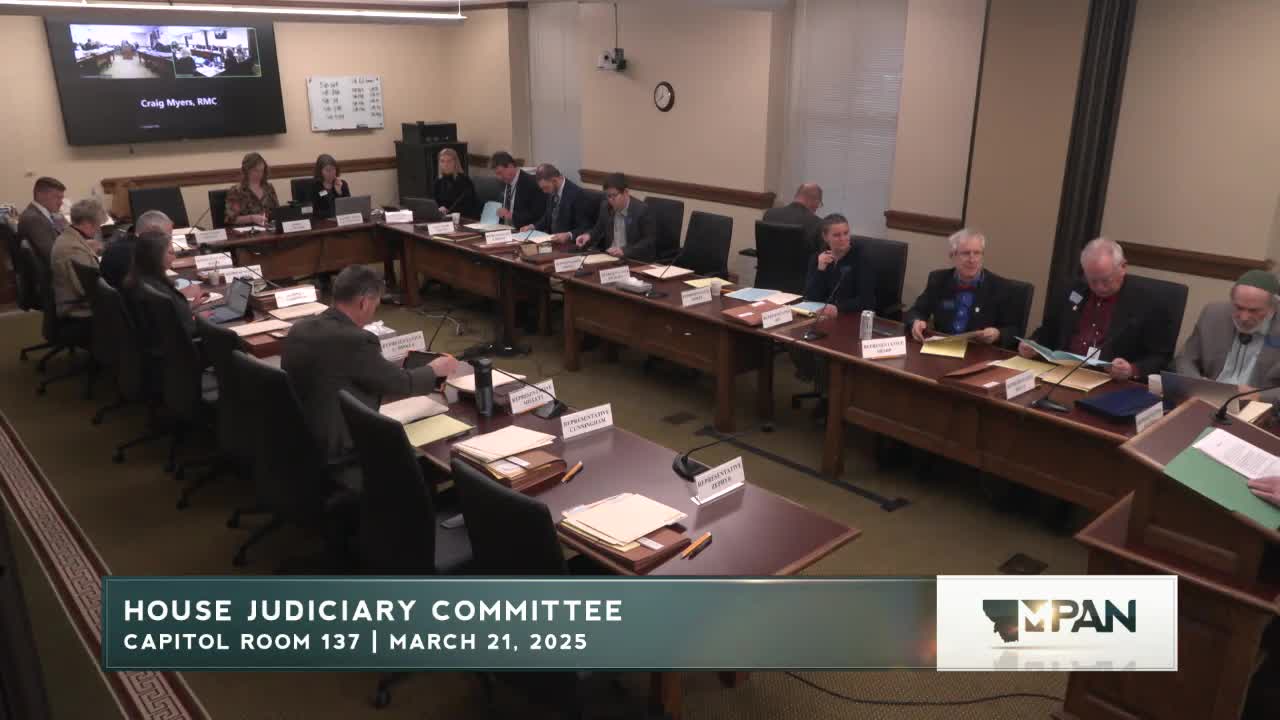Article not found
This article is no longer available. But don't worry—we've gathered other articles that discuss the same topic.

Hands‑free driving bill advances after emotional testimony from victims’ families

Committee hears bill to speed return of officers’ firearms seized as evidence

Bill to roll back 2017 theft penalties draws split testimony on deterrence and prison costs

Bills creating extended liability for gender‑dysphoria treatments draw sharply divided testimony

